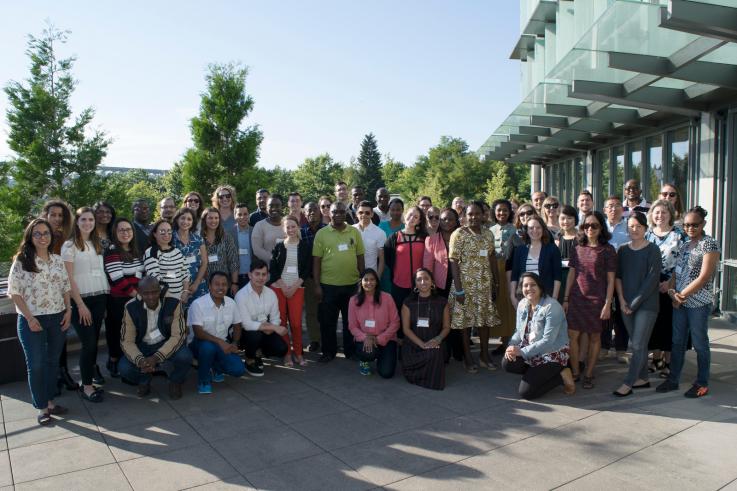
Translating remarkable advances in new medicines, vaccines, and diagnostic tools into practice that improve people’s lives on the ground can often be slow or uneven. To gain understanding of tools to effectively tackle this “know-do gap,” 72 students from 17 countries participated in UW Department of Global Health’s “Fundamentals of Implementation Science in Global Health” intensive course.
“Many of the solutions to health problems are not applied, leading to a widening gap between what is known and what is done in practice, known as the “know-do gap”,” says Bryan Weiner, Ph.D., Professor, Department of Global Health. “Implementation science has the potential to reduce this gap by applying systematic research and evaluation approaches to identify and address the barriers to effective replication and scale-up of evidence-based interventions in local settings.”
The course took place August 27- September 7 at UW Seattle and brought together students from diverse backgrounds, disciplines, and professions. The one-week course – with an optional second week of mentored protocol development – provided course participants with an introduction to the emerging field of implementation research.
In the first week of the course, students learned conceptual frameworks and appropriate methodologies for implementation science, and explored case studies that apply the frameworks in different contexts. The course also addressed barriers to effective replication and scale-up in local settings.
“Being in this course with people from different disciplines and diverse countries brought richness to the discussions. It’s important to understand the interdisciplinary nature of solving global health problems - – involving researchers, policymakers, NGOs, and others,” said Vesna Kutlesic, Ph.D., Director, Office of Global Health, NICHD, NIH. “I’m taking part in the course to gain an understanding of the factors that are important for research findings to be applicable in new communities.”
“I work in a community development program in the field, and want to learn about implementation research that will help improve impacts in the communities in which I work,” said Sudip Shrestha, Community Development Officer, Dhulikhel Hospital, Nepal. “The course is compact and well-designed – it’s a holistic package. The expert panel discussions were informative and helped me understand how people are working around the world. I’m learning a lot.”
Eighteen students took part in the second week of the course, and had the opportunity to work alongside six UW global health faculty mentors in the development of an implementation research protocol, with the goal of working through the critical elements of specific aims, mixed-methods study design, study measures, an analytic framework, and a dissemination plan.
Angela Spencer, Ph.D. Student, Community Health, Oregon Health and Science University/Portland State University School of Public Health, is developing a program that works with a community surveillance team to address pork tapeworm in northern Peru. “I’ve increased my familiarity of implementation theories, models, and frameworks, and how to incorporate these into community-based research, where we are aiming to bring evidence-based practices into low resource settings. I hope to continue working with the mentors and experts here at UW to build my own skills in both implementing evidence based strategies and also contributing to the field of implementation science research. This short course was a good opportunity to connect with others who have similar interests –the format fits within the rest of my studies and job responsibilities, while being able to get intensive training and make connections with others in the field.”
Gladys Ngwafong Mukere, a nurse and supervisor for paediatric HIV/AIDS care, Health Services Complex Mutengene, Cameroon, and a fellow with the Afya Bora Consortium Fellowship in Global Health Leadership, is working on a project to increase adherence among adolescents in ART in Cameroon. “I have implemented many projects over the years, and have realized that the know-do gap is still very wide. Getting more in-depth knowledge and skills in implementation science will help me reduce this gap in the field. The mentorship course has been wonderful, to learn more about IS framework, strategies, and how to incorporate these in my protocol. The opportunity to see the implementation strategies and frameworks used by other students has also been really useful. When I return home I’ll use what I’ve learned as I provide my care and implement projects. This course has also motivated me to pursue a Ph.D.”
“This course has been a mind-opening experience,” said Carlos Fajardo, MD, National Autonomous University of Honduras. “The field of implementation science is still relatively unknown. This has been a pioneering experience – we need to boost implementation research – it is so useful.”
Course photos available here.